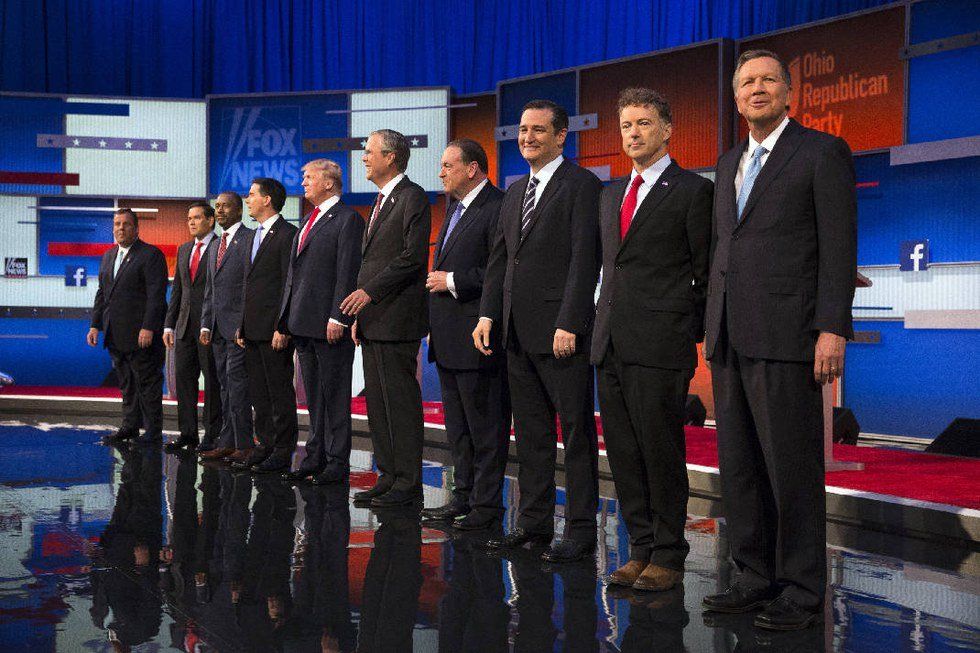I grew up playing cards. A lot of my childhood evenings were spent playing Go-Fish and War with my dad after dinner. At most family reunions, when I was still too young to gamble, I would sit and watch him play nickel-dime poker with my uncles and cousins. In addition to the quarters I collected for fetching beer from the fridge, I picked up a few things about cards and betting.
One of the most important lessons any card player learns is the importance of recognizing a losing situation and getting out of it. No point throwing good money after bad – sometimes you’ve just got to cut your losses and try again on the next hand. It’s a lesson that can be applied to many parts of life.
Unfortunately, it’s also a lesson that many often forget. A clear example of this disregard for sound advice is the 2016 Republican primary contest. Over a dozen candidates are vying for the presidential nomination, and only one will get it.
The point of a primary, of course, is to provide party voters with an opportunity to choose who best represents their ideals. Having a fairly wide field, with candidates whose ideas span the part spectrum, allows those voters the opportunity to find the right one for them. Eventually, however, the field must be thinned. Typically, low-polling campaigns will withdraw from the race once it becomes clear that they don’t stand a chance of clinching the nomination. Those that give up their bid can then throw their resources behind one of the remaining candidates – sometimes in the hope of earning a plum appointment or even the vice-presidential nod.
With the Iowa caucuses quickly approaching, the Republican field is still jam-packed with presidential hopefuls. As a conservative voter, this worries me. So far, the Republican primary contest has been a prolonged circus act, with flag pins and sound-bytes taking the place of clowns and lion tamers. Simply put, the majority of candidates need to take a step back from the yes-men running their campaigns and objectively ask themselves if they honestly stand a chance of winning. If the answer is no – as it should be for all but a bare handful of candidates – then they should drop out of the race. Doing so will not only save themselves from wasting money and sanity on a hopeless cause, it will also narrow the primary’s focus on the remaining few candidates. Donald Trump – as much as it hurts me to say – isn’t going anywhere anytime soon. If reasonable, decently-polling contenders such as Marco Rubio have to fight ten other candidates for media attention and fundraising, then Trump’s lead will only grow. I don’t think I need to explain how bad that would be for the Republican Party.
Dropping out of the race on their own terms – rather than being forced out by an embarrassing scandal or gaffe – also allows a candidate to assume the role of “adult in the room.” Look at Lindsey Graham; by dropping out once it became abundantly clear that his campaign wasn’t breaking through, he now is able to provide observations on the race from the position of elder statesman. For candidates from important election states, this position is twofold – not only are they sought for media commentary, the remaining candidates will no doubt seek out their endorsement for the primary election in their state.
At the end of the day, these candidates need to decide what is best for them, for the party, and for the country. I can respect wanting to fight to the very end, but there comes a point when you have to weigh your odds and make a choice. Most of these candidates are intelligent people, they have to know that they don’t truly stand a chance of winning.
Like Kenny said, the secret to surviving is knowing what cards to throw away and what to keep. It's past time for some Republicans to cash in their chips and walk away from the table.





















